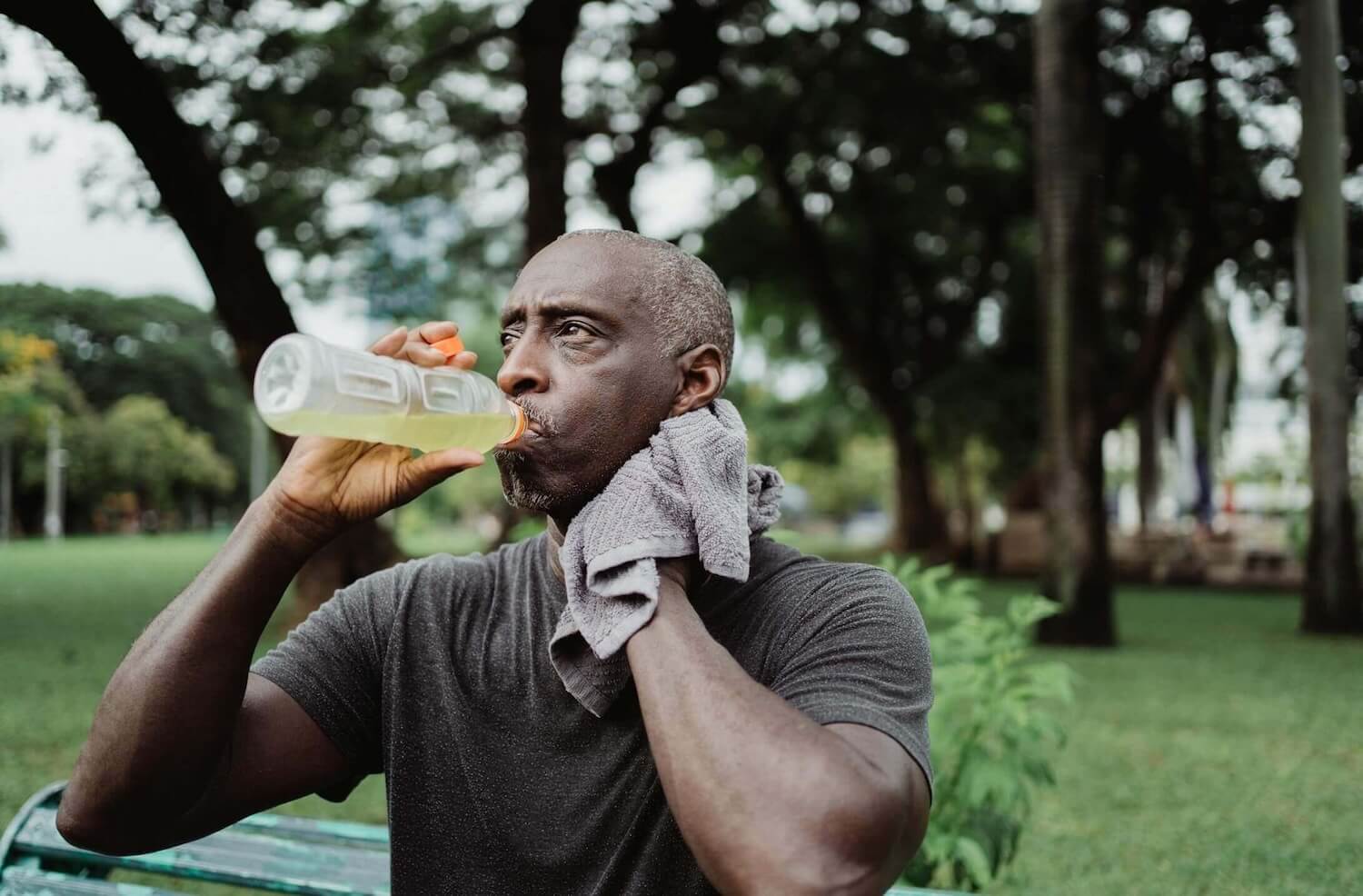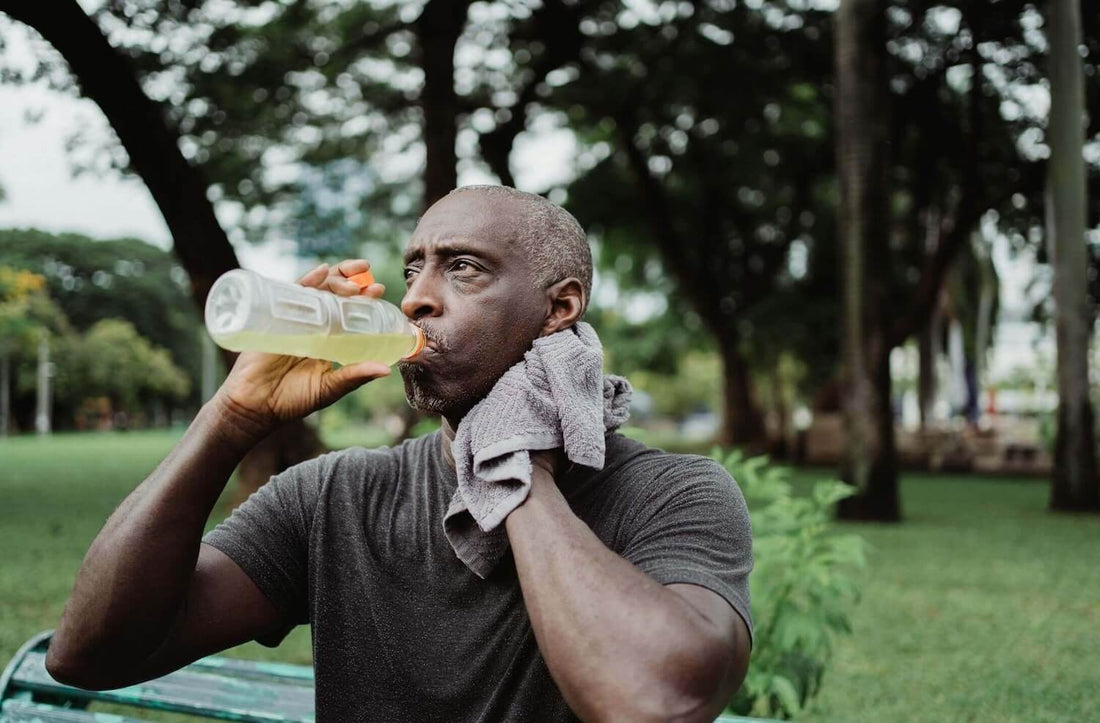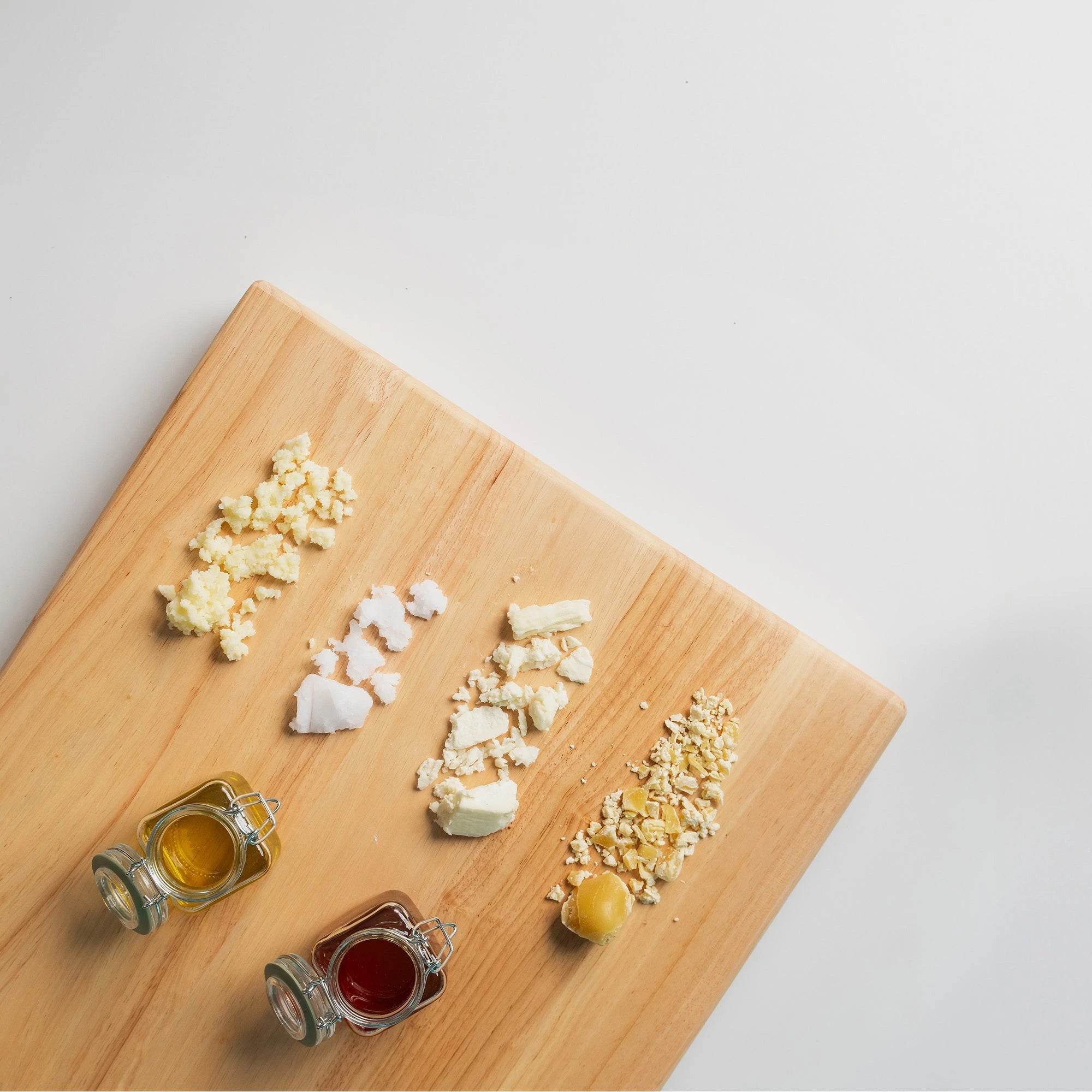You know that feeling when you're scrolling through the beverage aisle, trying to find the perfect electrolyte drink to fuel your workout or recovery? You pick up bottle after bottle, squinting at those tiny ingredient lists, and there it is again artificial sweeteners. Sucralose, aspartame, acesulfame potassium... the names sound more like chemistry experiments than things you'd want to put in your body.
If you're like most health-conscious people, you've probably wondered: what's the real deal with these artificial sweeteners in electrolyte drinks? Are they helping or hurting your clean living goals? Let's dive into this sticky-sweet situation and get some clarity.
Why Are Artificial Sweeteners Even in Electrolyte Drinks?
First things first let's talk about why these sweeteners are there in the first place. Electrolyte drinks need to taste good, or nobody would drink them. Have you ever tried straight electrolyte powder mixed with water? It's not exactly a flavor party in your mouth. We're talking about minerals like sodium, potassium, and magnesium; they can be pretty harsh on their own.
The challenge for manufacturers is creating something that tastes refreshing without loading it up with sugar. Regular sugar would defeat the purpose for many people trying to stay hydrated without the calorie bomb. Enter artificial sweeteners they provide sweetness without the calories, keeping the drink light and refreshing.
But here's where it gets interesting. Not all artificial sweeteners are created equal, and your body responds to them differently than it does to natural sugars.
The Most Common Artificial Sweeteners You'll Find
When you're checking out electrolyte drinks, you'll typically see a few usual suspects on the ingredient list:
Sucralose is probably the most common one you'll encounter. It's what's in Splenda, and it's about 600 times sweeter than regular sugar. The thing about sucralose is that it passes through your body mostly unchanged, which means it doesn't spike your blood sugar. Sounds great, right? Well, there's an ongoing debate about whether it affects your gut bacteria over time.
Aspartame is another big player in the artificial sweetener game. You might know it as NutraSweet or Equal. It's been around since the 1980s and has been studied extensively. Some people swear they get headaches from it, though the scientific evidence on this is mixed. What we do know is that people with a rare genetic condition called phenylketonuria (PKU) need to avoid it completely.
Acesulfame potassium (or Ace-K) often teams up with other sweeteners to create a more sugar-like taste. It's heat-stable, which makes it popular in processed foods and drinks. Like sucralose, it doesn't get metabolized by your body, so it passes through unchanged.
Stevia is technically a natural sweetener, but it often gets lumped in with artificial ones because it's so highly processed by the time it reaches your drink. It comes from the stevia plant, but the stuff in your electrolyte drink has been refined and concentrated significantly.
The Good, The Bad, and The Complicated
Let's be real about the benefits first. Artificial sweeteners allow people with diabetes to enjoy flavored drinks without worrying about blood sugar spikes. They also help people who are trying to lose weight or maintain their weight while staying properly hydrated. For athletes who need to replenish electrolytes without loading up on sugar, these sweeteners can be genuinely helpful.
But then there's the other side of the coin. Some studies suggest that artificial sweeteners might mess with your gut microbiome. That's the community of bacteria in your digestive system that plays a huge role in your overall health. Other research indicates they might actually increase sugar cravings over time, which could sabotage your healthy eating goals.
There's also the psychological aspect. Some people find that consuming artificial sweeteners makes them crave more sweet foods throughout the day. It's like your brain gets confused: it tastes sweet but doesn't get the calories it expects, so it keeps signaling for more.
What About Those Scary Headlines?
You've probably seen the alarming headlines about artificial sweeteners causing cancer or other serious health issues. Here's the thing most of these concerns come from studies done on rats using massive doses that no human would ever consume. The FDA has approved these sweeteners for human consumption, and they've set acceptable daily intake levels that are well below what would cause problems.
That said, "FDA approved" doesn't automatically mean "perfect for everyone." Your body is unique, and what works for one person might not work for another. Some people genuinely feel better avoiding artificial sweeteners, while others have no issues with them whatsoever.
The Natural Alternatives Game
If you're trying to avoid artificial sweeteners, you're not out of luck. Some electrolyte drinks use natural alternatives like coconut water, fruit juices, or monk fruit extract. These options can be great, but they often come with their own trade-offs.
Coconut water is naturally rich in potassium, but it's also higher in calories and natural sugars. Fruit juice adds vitamins and natural sweetness, but again, you're getting more sugar and calories. Monk fruit extract is a natural zero-calorie sweetener that's gaining popularity, though it can be expensive and some people find it has an unusual aftertaste.
Making Smart Choices for Your Lifestyle
So what's a health-conscious person to do? It really depends on your individual goals and how your body responds to different ingredients.
If you're someone who exercises regularly and needs to replenish electrolytes without extra calories, artificial sweeteners in moderation probably aren't going to derail your health goals. The key word here is moderation. Having an electrolyte drink with artificial sweeteners after a workout is very different from consuming multiple artificially sweetened products throughout the day.
If you're trying to reduce processed foods in your diet, you might want to look for electrolyte drinks with minimal ingredients or consider making your own. A simple mix of sea salt, potassium chloride (available at health food stores), and a splash of lemon juice in water can be just as effective as commercial options.
Reading Labels Like a Pro
When you're shopping for electrolyte drinks, take a moment to really read those labels. Look for drinks that have a short ingredient list with recognizable items. Pay attention to the type and amount of artificial sweeteners used. Some drinks use a blend of different sweeteners, which can sometimes create a more natural taste profile.
Also, don't forget to check the actual electrolyte content. Some drinks are heavy on the flavoring and light on the minerals you actually need. Look for drinks that contain at least 200-300mg of sodium and 100-200mg of potassium per serving if you're using them for workout recovery.
The Bottom Line
Artificial sweeteners in electrolyte drinks aren't inherently evil, but they're not necessarily the holy grail of healthy hydration either. They're a tool one that can be useful in certain situations but might not be necessary for everyone.
The most important thing is staying hydrated and replenishing electrolytes when you need to. Whether you choose a drink with artificial sweeteners, natural alternatives, or make your own concoction at home, the best choice is the one that you'll actually use consistently.
Listen to your body, pay attention to how different ingredients make you feel, and remember that perfect is often the enemy of good. If having an electrolyte drink with artificial sweeteners helps you stay properly hydrated and supports your active lifestyle, that's probably a net positive for your health, even if it's not the most "natural" option available.
Your clean living journey is yours. Make choices that support your goals and make you feel your best, whether that includes artificial sweeteners or not.




